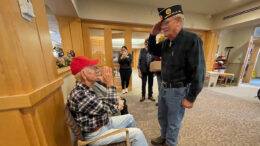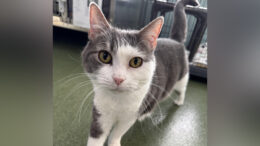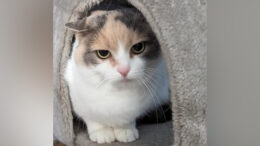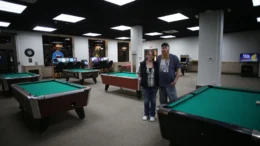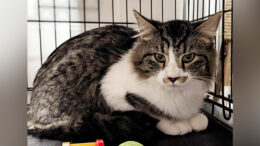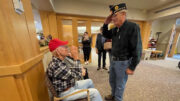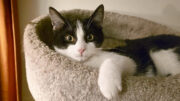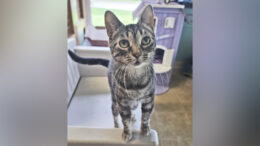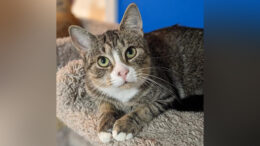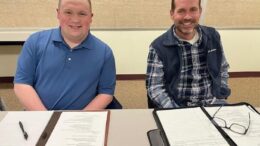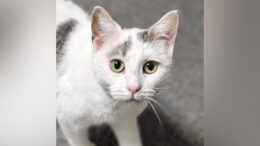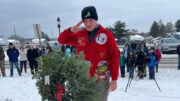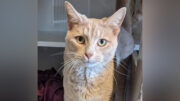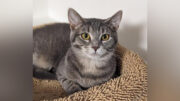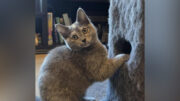The Associated Press
In the April 1972 issue of Cosmopolitan, Burt Reynolds had (almost) nothing to hide.
With his trademark bushy mustache topping his ever-present smirk and one of his hands strategically covering his private parts, Reynolds dared to bare — as he did most of his life.
He would call his Cosmo centerfold one of his greatest regrets, a decision which undermined the respect he had gained for his performance in “Deliverance.” But candor was his curse and his appeal as Reynolds, the handsome film and television star who died Thursday at age 82, maintained an active and well documented public and private life.
Sex symbol. Serious actor. Laughing stock. Gold mine. Comeback artist. Reynolds followed long and conflicting paths. He once joked that if you turned his career into a medical chart, it would look like a heart attack.
He starred in such critically acclaimed pictures as 1972’s “Deliverance” and 1997’s “Boogie Nights” and such commercial hits as “Smokey and the Bandit” and “The Cannonball Run.” He had a hit TV show in the 1990s with “Evening Shade” and, during his prime, was a perennial top draw at the movie box office.
He managed some of the industry’s highest and lowest honors. He was nominated for an Oscar for “Boogie Nights” and won two Golden Globes and an Emmy. But he also was a frequent nominee for the Razzie, the tongue-in-cheek award for Hollywood’s worst performance, and his name was often in the news whether he liked it or not. He had an acrimonious divorce from former TV star Loni Anderson in 1995, a high-profile romance with Dinah Shore and a long relationship with Sally Field. His first wife, “Laugh-In” star Judy Carne, criticized him often for not being supportive of her career.
Through it all he presented a genial persona, ever willing to mock his own failings, like turning down the role that went to Richard Gere in “Pretty Woman” or the chance to play James Bond when Sean Connery was holding out for more money.
“For a long time afterward I’d wake up in a cold sweat going, ‘Bond, James Bond!'” he wrote in his memoir “But Enough About Me,” published in 2015.
An all-Southern Conference running back at Florida State University in the 1950s, Reynolds appeared headed to the NFL until a knee injury and an automobile accident ended his chances.
He dropped out of college and drifted to New York, where he worked as a dockhand, dance-hall bouncer, bodyguard and dish washer before returning to Florida in 1957 and enrolling in acting classes at Palm Beach Junior College.
He won the Florida Drama Award in 1958 for his performance in the role John Garfield made famous in “Outward Bound.” He was subsequently discovered by a talent agent at New York’s Hyde Park Playhouse.
Early theater roles included performances in “Mister Roberts” and “Look: We’ve Come Through.”
After moving to Hollywood, he found work as a stuntman, including flying through a glass window. Later, as a star, he often performed his own stunts, and he played a stuntman in the 1978 film “Hooper,” one of his better reviewed films.
His first film role came in 1961’s “Angel Baby,” and he followed it with numerous other mediocre movies. But he did become famous enough to make frequent appearances on “The Tonight Show,” leading to his most cherished film role and to his greatest folly.
In the early 1970s, director John Boorman was impressed by how confidently Reynolds handled himself when subbing for Carson as host of “The Tonight Show.” Boorman thought he might be right for a film adaptation of James Dickey’s novel “Deliverance.”
Reynolds starred as Lewis Medlock, the intrepid leader of an ill-fated whitewater canoe trip. When he and three other Atlanta businessmen are ambushed by violent backwoodsmen, Reynolds must guide the group to safety.
“Deliverance” was an Oscar nominee for best picture and no film made him prouder. In his memoir, he wrote that “Deliverance” would be his choice could he put one of his movies in a time capsule.
“It proved I could act,” he wrote.
But soon after filming was completed, he made a decision he never stopped regretting. While appearing on “The Tonight Show” with Cosmopolitan editor Helen Gurley Brown, he agreed to her invitation, offered during a commercial break, to be the first male centerfold for her magazine.
“I was flattered and intrigued,” Reynolds wrote in his memoir. The April 1972 issue of Cosmopolitan quickly sold more than 1 million copies, but turned his life into a “carnival.” The centerfold would appear on T-shirts, panties and other merchandise and Reynolds began receiving obscene fan mail. Reynolds’ performance in “Deliverance” was snubbed by the movie academy.
“It was a total fiasco,” he wrote. “I thought people would be able to separate the fun-loving side of me from the serious actor, but I was wrong.”
He did remain an A-list movie star, starring in such films as “Shamus,” ”The Best Little Whorehouse in Texas” and three popular “Smokey and the Bandit” comedies, with co-stars including Field and Jackie Gleason.
Reynolds also directed a few of the films he starred in, including “Gator,” ”Sharky’s Machine” and “Stick,” and made cameo appearances in the Hollywood spoof “The Player” and Woody Allen’s “Everything You Always Wanted to Know About Sex (But Were Afraid to Ask).”
One of his first encounters with the tabloids came in 1973 with the mysterious death of co-star Sarah Miles’ manager during filming of “The Man Who Loved Cat Dancing.” Reynolds testified during a highly publicized inquest but the death was eventually ruled a suicide.
His romance with Shore, 20 years his senior, also brought intense media scrutiny. The two met when Reynolds made a surprise appearance on her talk show, bursting out of a closet on the set.
But the couple’s eventual breakup, and his later split with the popular Field, brought him negative publicity, especially after he acknowledged he was jealous of Field’s becoming an Academy Award winner. His career was nearly destroyed in the 1980s when false rumors surfaced that he was infected with the AIDS virus. He had injured his jaw making the 1984 comedy “City Heat” with Clint Eastwood. Barely able to eat, he lost 50 pounds and suddenly looked ill and emaciated.
“For two years I couldn’t get a job,” he told the AP in 1990. “I had to take five physicals to get a job. I had to take the pictures that were offered to me. I did action pictures because I was trying to prove that I was well.”
He eventually regained his health, and in 1988 he married Anderson. The actress, one of the stars of the sitcom “WKRP in Cincinnati,” had met him on a talk show.
The couple divorced in 1995, and their breakup was an embarrassing public spectacle, with the pair exchanging insults in print interviews and on television shows. Reynolds finally paid her a $2 million settlement and a vacation home to settle the divorce.
He rebounded once again, this time with the role of porn movie impresario Jack Horner in Paul Thomas Anderson’s “Boogie Nights,” which brought him some of his best reviews even though he felt ambivalent about his characters and felt limited rapport with the director.
He won a Golden Globe for best supporting actor and received an Oscar nomination. Convinced he would win, he was devastated when the Oscar went to Robin Williams for “Good Will Hunting.”
“I once said that I’d rather have a Heisman Trophy than an Oscar,” he wrote in his memoir. “I lied.”
Reynolds had previously won a Golden Globe in 1992 for “Evening Shade,” in which he played Wood Newton, a former professional football player who returns to his Arkansas hometown to coach the high school team. He also received an Emmy for the role in 1991.
Burton Leon Reynolds was born on Feb. 11, 1936, in Lansing, Michigan, the son of a police chief, and he was raised in Florida. His earliest acting roles were in high school plays.
After several years in California, he returned in 1969 to Florida, where he had gone to college. He bought eight acres of waterfront property in the wealthy community of Jupiter and spent most of the rest of his life there, devoting much of his later years to his only son, Quinton, whom he had adopted with Anderson.
He opened the Burt Reynolds Jupiter Theatre and a Burt Reynolds and Friends Museum, where he displayed his memorabilia and sometimes lectured to drama students. His advice included keeping a sense of humor and knowing which scripts work best for you. The smarter kids, he told InJupiter Magazine in 2017, “ask me where the land mines are because I’ve stepped on them all.”



